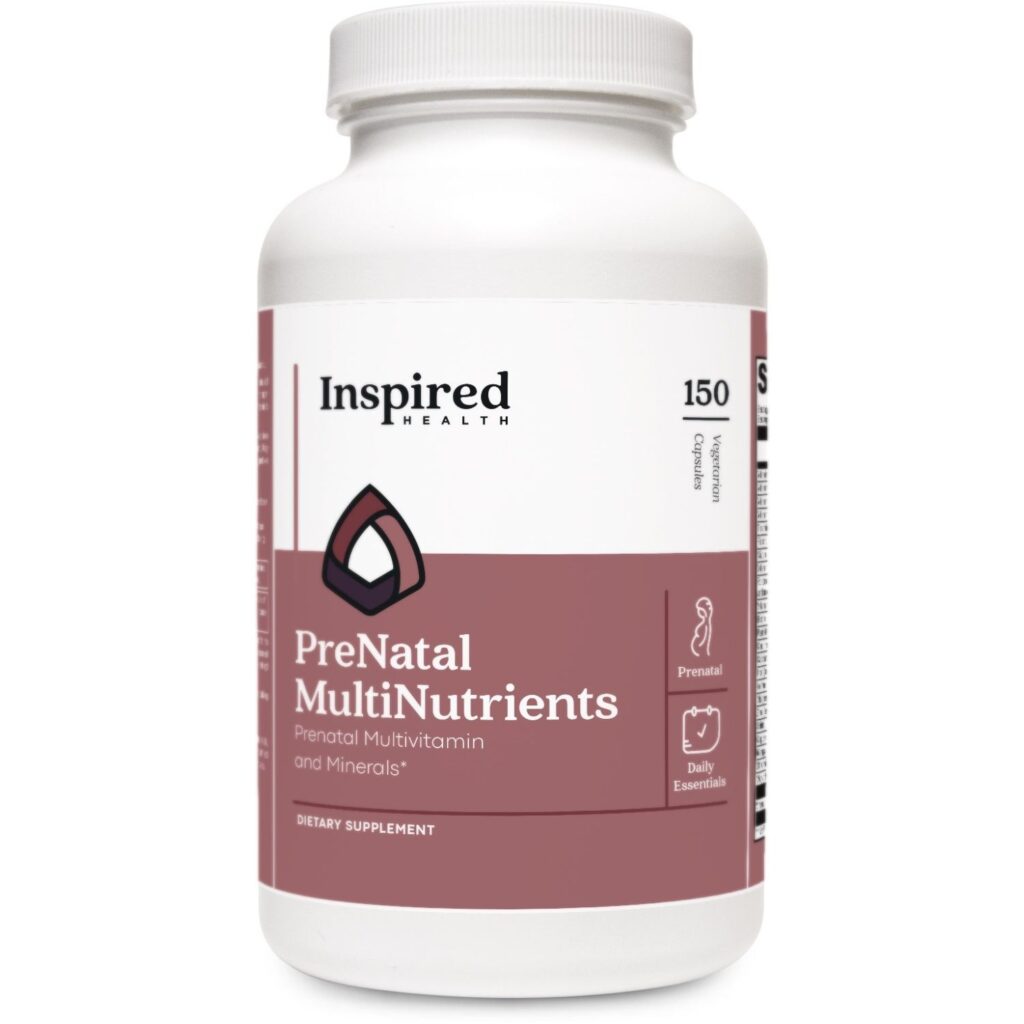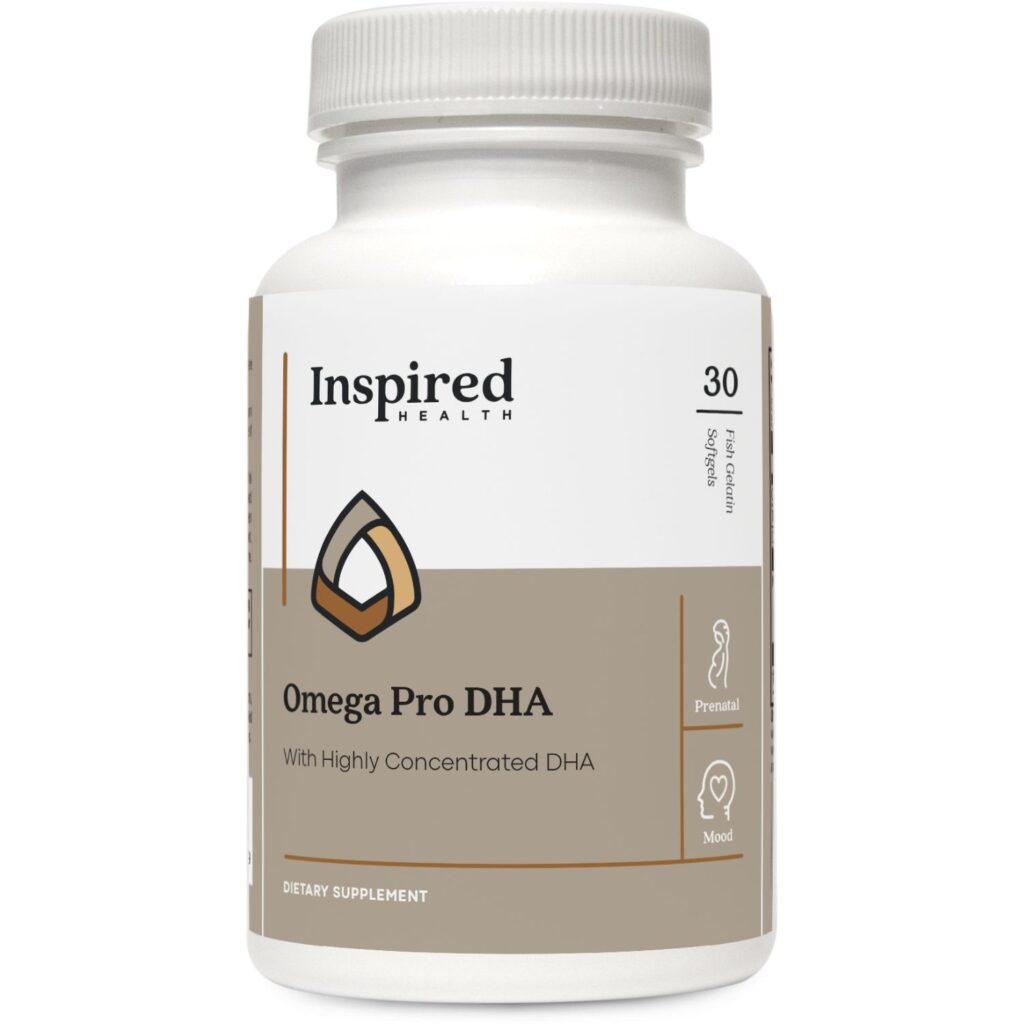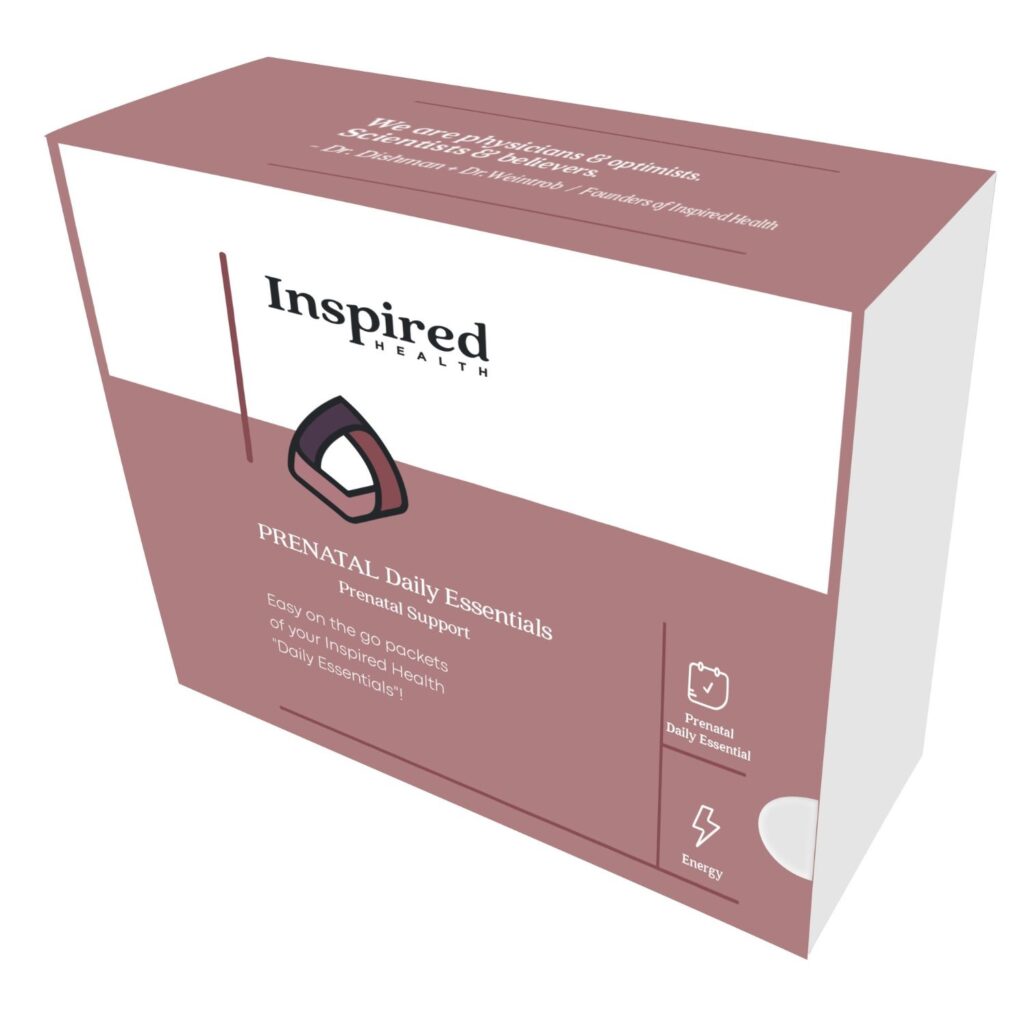During pregnancy, a woman’s nutritional needs increase significantly to support the growing fetus. Prenatal supplements help bridge any nutritional gaps and ensure that both the mother and baby receive adequate nutrients. These supplements typically contain a combination of vitamins, minerals, and other nutrients that are essential for a healthy pregnancy. Let’s explore the importance of prenatal supplements and vitamins during pregnancy!
It’s important to start prenatal supplementation PRIOR to onset of pregnancy as the early weeks of development often happen before the woman even knows she is pregnant. Of course, please discuss with your health care provider for the best individualized advice.

Folic Acid
One of the most important vitamins in prenatal supplements is folic acid. Folic acid plays a critical role in the early development of the baby’s neural tube, which eventually forms the brain and spinal cord. Adequate folic acid intake before and during pregnancy can significantly reduce the risk of neural tube defects, such as spina bifida. Recent research also points to additional benefits such as reduced congenital heart defects and preterm labor. It is recommended to take folic acid in the more easily absorbed form: L-methylfolate. This is due to the fact that up to 60% of the population have genetic issues with complete absorption of folic acid in its whole form, therefore taking L-methylfolate bypasses this issue.
Multivitamin
In addition to these key nutrients, PreNatal Multivitamin supplements may also include vitamins such as vitamin D, vitamin C, vitamin B12, and magnesium. Vitamin D helps the body absorb calcium and supports the baby’s bone development. Vitamin C is important for the formation of collagen, which is vital for the baby’s skin, bones, and connective tissues. Magnesium may reduce the chances of serious conditions such as fetal growth restriction and preeclampsia. Also a wonderful support for constipation.

DHA
Omega-3 fatty acids, particularly DHA, are important for the baby’s brain and eye development. Fish or algae supplementations are available.

Iron
Another essential nutrient found in prenatal supplements is iron. Iron is necessary for the production of red blood cells, which carry oxygen to both the mother and the baby. Pregnant women often require more iron to support the increased blood volume and the baby’s growth. Iron deficiency during pregnancy can lead to anemia, fatigue, and complications during childbirth.
Calcium
Prenatal supplements also contain calcium, which is essential for the development of the baby’s bones and teeth. Calcium is also crucial for maintaining the mother’s bone health during pregnancy and preventing conditions like osteoporosis later in life.
Here at Inspired Health, we have made the process of choosing supplements easier for expectant mothers with our Prenatal Daily Med Packs. These convenient packs include a month’s supply of the Prenatal Multivitamin, OmegaPro DHA, Vitamin D3-k2 5,000, and Magnesium.

It’s important to note that prenatal supplements should not replace a healthy diet. They are intended to complement a well-balanced eating plan. Pregnant women should strive to consume a variety of nutrient-dense foods, including fruits, vegetables, whole grains, lean proteins, and dairy products. Happy growing!

Want more Inspired tips?
Be sure to follow us on Instagram, Facebook, and Pinterest.
Also, sign up for our newsletter!
Visit us in-person at Inspired Health, or schedule a TeleHealth appointment!
References
[1] “Folic acid supplementation and pregnancy…” 2011.
[2] “Multivitamin supplementation during pregnancy…” 2011.
[3] “Nutrition during pregnancy: iron during pregnancy.” 1990.
[4] Omega-3 fatty acid supplementation during pregnancy.” 2008.
[5] “Magnesium supplementation in pregnancy.” 2014.






